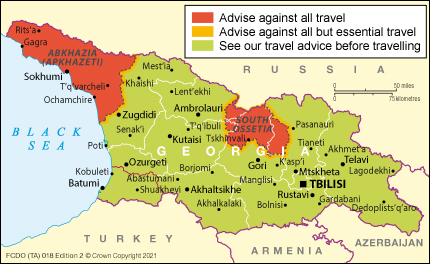Related Practices and Jurisdictions
On May 2, 2022, Georgia Governor Brian Kemp signed SB 470 amending the provisions of Georgia’s banking statutes regarding the denial or revocation of a mortgage license or registration based on certain felony convictions. SB 470 will reduce the impact on mortgage companies as a result of Georgia’s existing ban on employing previously convicted felons.
While the state SAFE law imposes requirements on mortgage lender licensees requiring such individuals to undergo criminal background checks and restricts the admission of such individuals if they have been convicted of a felony within the past seven years, certain states have requirements that apply beyond these SAFE Act requirements. Georgia has been challenged by rampant mortgage fraud in the past and as such maintains significant safeguards regarding the employment of felons. In particular, the Georgia Residential Mortgage Act has historically prevented the overwhelming majority of persons convicted of a felony from being employed by a Georgia mortgage lender licensee or a Georgia mortgage broker/processor. The implications of this provision extended well beyond Georgia to include employees and mortgage lenders in other states, even those not licensed to lend in the state of Georgia.
The new law, known as Act 796, amends Section 13 of Chapter 1 of Title 7 of the Georgia Code, introducing a redefined term for a covered employee. Specifically, a “Covered Employee” is defined as “any employee of a mortgage lender or mortgage broker involved in activities related to Georgia residential mortgage lending and includes, but is not limited to, a mortgage lender, processor, or underwriter or other Employees who have access to information related to the origination, processing, or underwriting of residential mortgage loans.” The practical implication of this language is that employers who hold a Georgia mortgage license can ensure that their non-Georgia-based employees do not involved in the preparation, processing or assumption of loans in Georgia and do not have access to information With respect to loans in Georgia, the employment of individuals who may have previously been convicted of a felony does not constitute a compliance violation consistent with the Licensee could face enforcement action, including possible license revocation, by the Georgia Department of Banking and Finance. Ultimately, the Department of Banks and Finance may issue additional rules or guidelines on how to handle this requirement. However, we understand that the intent of the legislation is to allow businesses to hire outside of Georgia more freely, with the understanding that it is possible to hire someone who may have a criminal background as long as the person is not in Georgia located and will not work with Georgia loan files.
© 2022 Bradley Arant Boult Cummings LLPNational Law Review, Volume XII, Number 129










